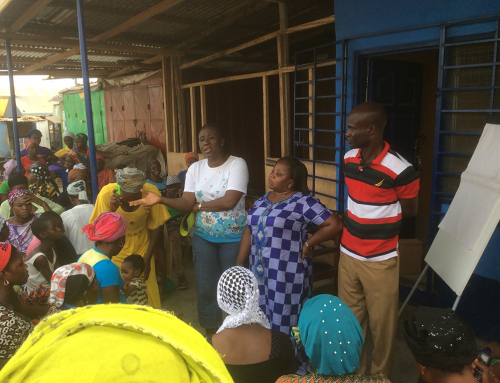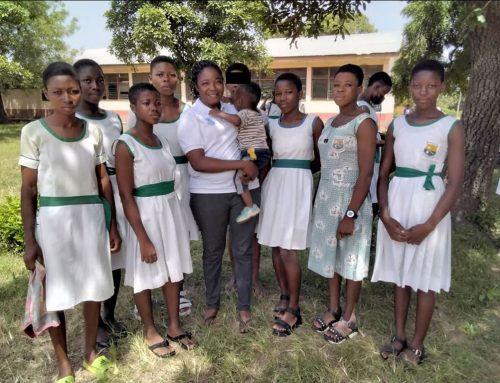CDI Facilitate A Ceremony To Announce Funding Support To Deal With Child Marriage In Ghana

The presence of vast numbers of unsupervised and unprotected children is a phenomenon that is common throughout Ghana, and in few places such as Old Fadama popularly called Agbogboloshie are the street children particularly young female head porters (Kayayees) more visible, and reviled, than in other places. The number of under-aged kayayees (Children below 14 years) in major parts of Accra is a common spectacle. Girls as young as 7 years can be found in Accra and other cities hiring themselves as carriers of goods, washers of dishes in local restaurants, house helps, baby sitters and some even forced into prostitution. Some of these girls are actually victims of child and forced marriages who have found their way into the streets.
Child marriage is an issue that we all need to rally around; communities, civil society and the children themselves have a role to play in supporting girls to live their childhood-not to be forced into marriage. In fact, the problem threatens to increase with the expanding youth population in Ghana.
At the regional level, previous surveys gave the indication that prevalence is highest in Upper East (50%) followed by Upper West (39%), Brong Ahafo (33%), Central (28 %), Ashanti region (23%), Western region (18%), Eastern region 18%), and Greater Accra (11%) according to UN office/Accra) sources.
Though, not limited to under-aged girls of Northern extraction alone, majority of these girls have either been trafficked, migrated and/or escaping from forced marriage from communities in the three northern regions of Ghana (Upper West, East and Northern), a distance of over 700 km.
As they age and become less successful at panhandling, some of these young girls of this category commonly use prostitution as a way of supporting themselves.
These children are denied access to the basic rights of children and are exposed to the occasional hostile weather conditions as well as moral and physical dangers. Many of the new arrivals to some suburbs of Accra for example, have to sleep on pavements of market stores and uncompleted or abandoned buildings exposing them to all sorts of social vices including rape.
Some of these girls are also escaping from being given out from early marriage while yet, others are actually victims of child marriage who have escaped and migrated to urban cities including Accra.
In Ghana, it is estimated that about 34,000 girls are married annually before they turn 15 years. According to data from the Multiple Indicator Cluster Survey of 2011(MICS) show an increasing trend compared with the 2006; children marrying before age 15 years rose from 4.4 percent in 2006 to 5.8 in 2011.
In order to official announce the support during a visit of Dutch Business delegation to Ghana on the 19th of June and led by the Dutch Minister for Foreign trade and Development Cooperation Honorable Minister Lilianne Ploumen, CDI in partnership with the Kayayee Association of Ghana and AGREDS was contracted to mobilize over 70 kayayees to interact with the visiting Minister and other key stakeholders.
The ceremony which was held on the 19th June 2014 was to officially announce the Kingdom of the Netherlands Funds to Address Child Marriage in Ghana .The ceremony was attended by key stake holders including the Department of Social Welfare, Ghana Education Services, Ghana Health Service, Civil Society Organizations and the Media persons. The Honorable Ministers Ms Lilian Ploumen, Hon. Nana Oye Lithur as well as Ms. Susan Namondo Ngongi, the UNICEF Country Representative to Ghana all made short remarks as part of the ceremony.
Given the deplorable living conditions that some of these girls live and work, there is the urgent need for strengthening partnership and forming new alliances with development partners, government and civil society to effectively manage the challenges of under-aged kayayee in general and child marriage in particular both at the source and places where they escape to dwel even if it is for a short period of time. We need to challenge factors that deny them access to livelihood opportunities and in the vast majority of cases, make them live in lifelong poverty.
The practice is an appalling violation of human rights and robs girls of their education, health and long-term prospects. A girl who is married as a child is one whose potential will not be fulfilled. Since many parents and communities also want the very best for their daughters, we must work together and end child marriage.



